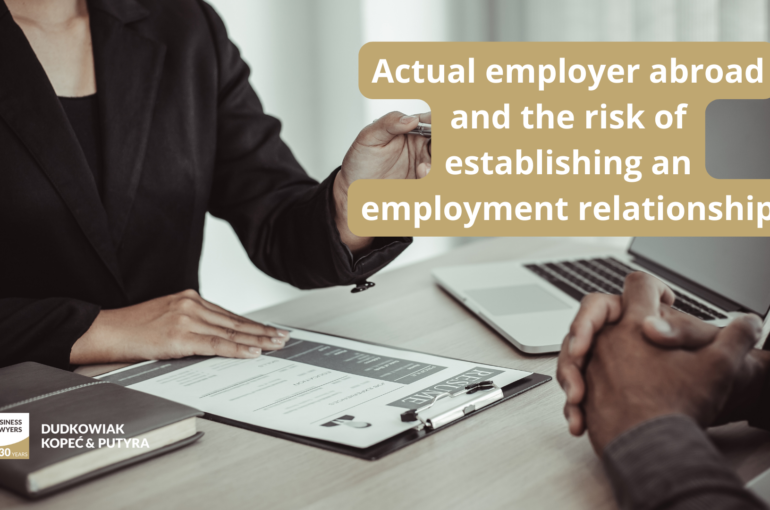On 1st of January, 2019 there will be a revolution in the management and storage of employee records.
From the beginning of a new year, employers will have to carry out electronization of documents related to the employment relationship. On January 1, 2019, the Act of January 10, 2018, amending certain acts due to the shortening of the period of storage of employee files and their electronization will come into force, which act will introduce significant changes regarding the management and storage of employee documentation.
In connection with the Act of January 10, 2018, in September on the website of the Ministry of Family, Labour and Social Policy in the Public Information Bulletin and on the website of the Government Legislation Centre, a draft regulation, dated 13 September 2018, of the Minister of Family, Labour and Social Policy on employee documentation was published. BE ADVISED! It must be taken into consideration that employers must, in fact, wait for the final version of this legal before adjusting to the new regulations. Currently only the project is known which may be considerably changed.
This draft of Act introduces a period of 6 months for employers to implement changes.
Scope of changes
What will these changes, according to the design, amend? Here are just a few examples of them:
- employee documentation could be managed in electronic form instead of in paper form,. BE ADVISED! Basic documents related to the employment relationship, such as a work contract or a declaration of its dissolution, will still have to be concluded in a traditional paper form – and the electronic form only considers storaging of these documents;
- the obligatory storage period of employee documentation will be significantly shortened, as the employer will be obligated to store this documentation for the entire period of employment and 10 years after its termination (instead of the current 50 years). BE ADVISED! In this matter, however, the legislator has introduced significant restrictions:
- substantially shortened storage period of the documentation will apply to employees hired from January 1, 2019,
- under certain conditions, reduced storage time will also apply to employees employed after December 31, 1998, which will require the submission of an information report in the Social Insurance Authority
- employers will be required to maintain documentation in a manner that guarantees its confidentiality, integrity, coherence and availability, in conditions that will not expose them to damage or destruction; What is worth mentioning here, the proposed regulation also contains references to the provisions of the Labor Code regarding the protection of personal data (Articles 221 – 221b), which, however, have not yet been adopted, and it is unknown when they will come into force; Mentioned provisions are included in the draft of Act amending certain acts in connection with ensuring the application of Regulation 2016/679, i.e. GDPR;
- personal files of employees will consist of four parts and will be extedned – i.a.. a new part of personal files will be separated, which will concern the employee’s disciplinary liability or liability specified in separate regulations; Importantly, the new part, in accordance with the amendment, will be called part „C” which will result in the necessity to include the new part in the middle of the current personal files (instead of calling it part „D” and adding it just at the end of the file).
How to implement changes in your workplace?
Employers are inevitably tedious for the process of identifying all the changes that the new regulation introduces to keep the records in the manner prescribed by the new regulations. This entry indicates only a few, among numerous changes. In connection with the above, it may be helpful and reasonable to conduct audits in the area of keeping and storing employee documentation, introducing additional procedures for dealing with documentation – digitalization, access to documentation, backup, storage, security, or control of security operations.
Additional information
Amendment will also introduce a long-awaited and desired by the employers change, in the default form of payment of remuneration, which will be a transfer to the employee’s bank account. For employers, the above mentioned regulation will entail the requirement to notify employees, by 22 January 2019, in a manner accepted by a given employer, which employees previously received remuneration to their own hands, about the obligation to provide a payment account number to which remuneration for work will be paid or to submit a motion regarding further payment of remuneration for work to employee’s own hands.


